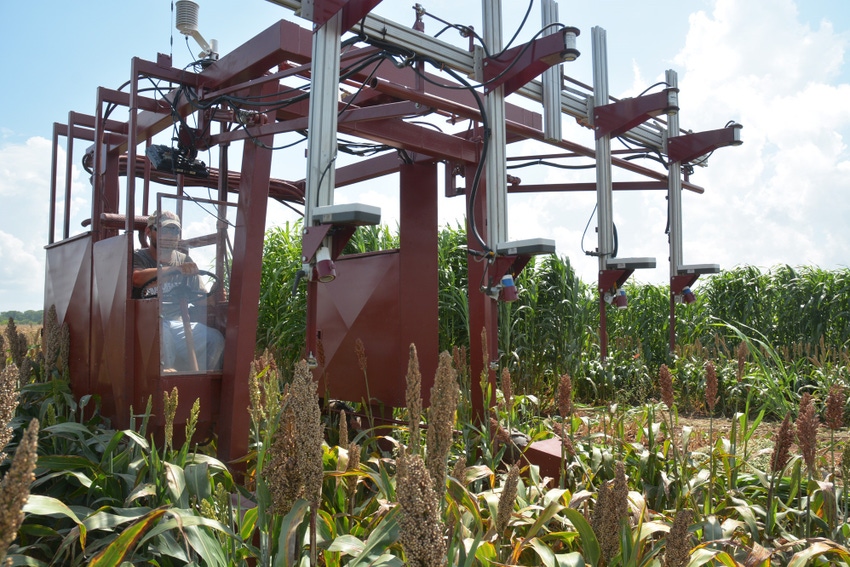
Technology is playing increasingly important roles in agriculture, not only for growers and their in-field management but also for research scientists using high-tech tools to develop the next generation of higher yielding, more efficient varieties.
Two reports, one from Texas A&M AgriLife Research and the other from Kansas State University, show how researchers are using new technology to develop better corn hybrids and more efficient irrigation systems to produce higher yielding varieties and to use water resources more efficiently.
Imagery helps corn breeder speed up hybrid development
Seth Murray, Texas A&M AgriLife corn breeder in the soil and crop science department of Texas A&M University at College Station, says images captured by an unmanned aerial vehicle or self-propelled ground vehicle could be worth not just a thousand words but more than a thousand man hours.
The images can then lead to the selection of the next higher yielding crop variety, not in 10 years, but in two or three years.
Murray says the world of genomics and DNA markers has been around for 30 years, but only recently have they been routinely incorporated into the breeding programs. Genomics allows researchers to identify genetic locations in plants exhibiting certain phenotypic traits they need to improve production.
The next step is development of high-throughput field phenotyping, or HTFP, tools for the next generation of plant breeding, Murray said.
His current project is developing analysis methods and software that will allow HTFP data to aid breeding decisions.
See the video. https://www.youtube.com/watch?v=2sR58qsJiSE&feature=youtu.be
Corn plant height is a key research target, he says.
For the latest on southwest agriculture, please check out Southwest Farm Press Daily and receive the latest news right to your inbox.
Mobile drip irrigation research garners $300,000 innovation award
Isaya Kisekka, a Kansas State University agricultural engineer was named a New Innovator by the Foundation for Food and Agriculture Research for his efforts to demonstrate how mobile drip systems conserve water. The award, valued at $300,000, will support faculty members in the first three years of their careers.
“The unique thing about funding from FFAR is that it is not tied to a particular project, but rather will complement ongoing research and outreach on limited irrigation,” Kisekka said.
The research team, based in Garden City, can continue important work in advanced irrigation scheduling; mobile drip irrigation; and developing a decision support tool for limited irrigation.
About the Author(s)
You May Also Like






